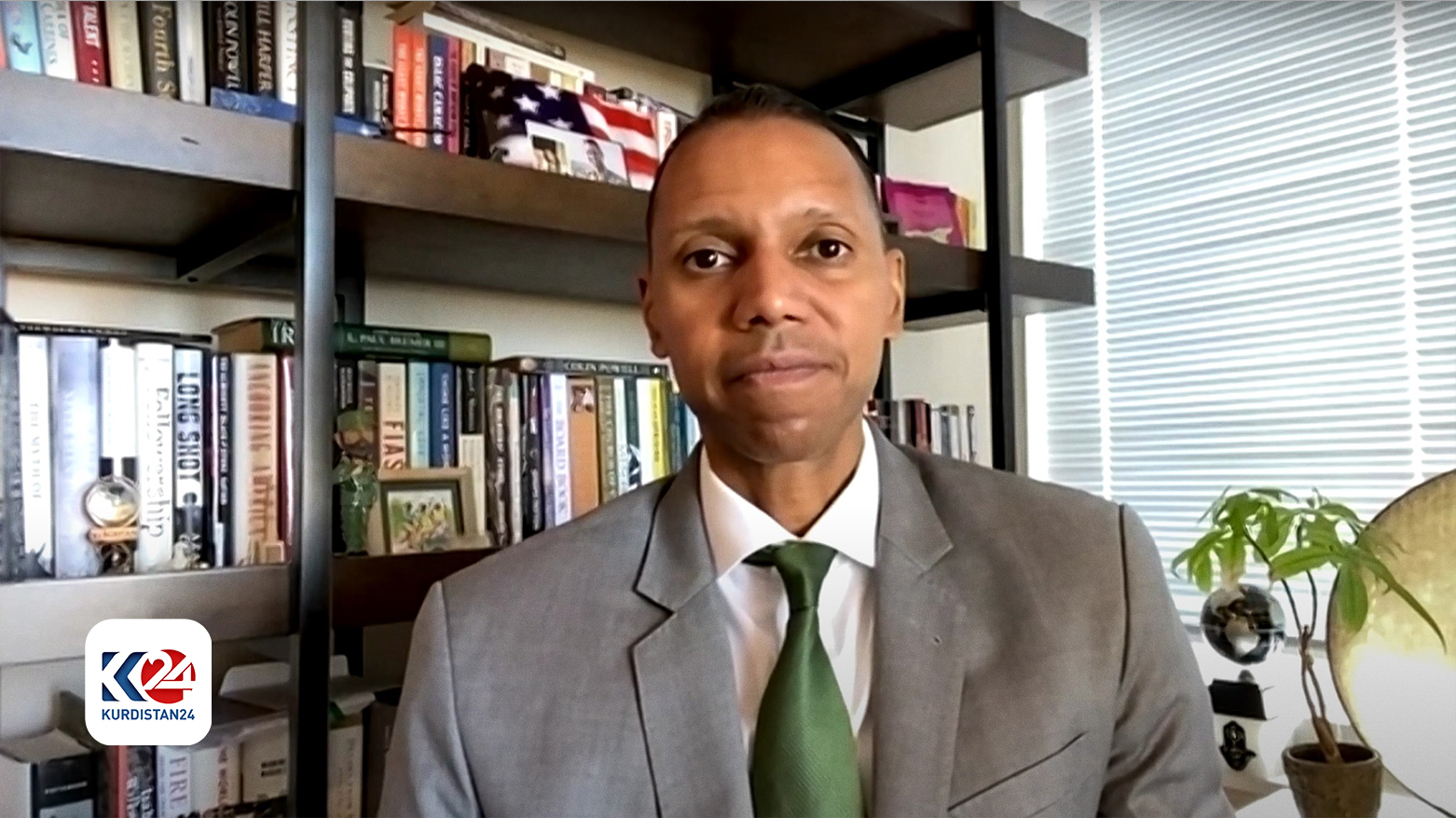Blinken to Meet Sudani at UNGA; Talks to Include Restarting Exports through Iraq-Turkey Pipeline
"There is no technical obstacle to renewing oil exports through the pipeline," Caggins explained.

WASHINGTON DC, United States (Kurdistan 24) – The opening of the 79th session of the UN General Assembly (UNGA) begins on Monday. During this high-level diplomacy which attracts leaders from all over the world, U.S. Secretary of State Antony Blinken will meet with the Iraqi Prime Minister Mohammed Shi’a al-Sudani, as Col. Myles Caggins, a former Spokesperson for the anti-ISIS Coalition and now Spokesperson for APIKUR (Association of the Petroleum Industry of Kurdistan), told Kurdistan 24.
“We know that the discussion of the Iraqi-Turkey pipeline will be part of their agenda,” Caggins pointedly said.
The Kurdistan Regional Government (KRG) had been exporting oil through that pipeline until 2023. The pipeline carried oil to Turkey’s Mediterranean port of Ceyhan, from where it was shipped to the international market.
However, in March 2023, a ruling by the International Chamber of Commerce’s International Court of Arbitration (ICC-ICA) precipitated the shutdown of the pipeline.
At that point, the legal case was nine years old. It was first brought to the court by the government of Nuri al-Maliki, a highly sectarian Shi’ite leader, whose misrule was judged to be a significant element contributing to the rise of ISIS, and who was forced to resign as a condition of U.S. support for the fight against the terrorist organization.
The first U.S. response to the ICC-ICA ruling was to call for resuming Kurdish oil exports—but over a year later, they remain blocked. It is difficult to understand why that should be.
Read More: U.S. Calls for Resuming Kurdish Oil Exports—after adverse ruling in nine-year-old arbitration case
However, this issue will be on the agenda later today, when Blinken meets Sudani, as Caggins told Kurdistan 24, and, hopefully, that discussion will fix the matter.
Iraqi Prime Minister Can Resolve Issue
Sudani has the authority to resolve the issue. Two days ago, as Caggins remarked, Sudani, “appeared on Bloomberg Television Network, and he said that he believes it is possible to restore the exports and have this issue solved by the end of the year.”
“We know that Prime Minister Sudani has the influence and the power to resolve the problems,” Caggins affirmed. “He has to direct his government to produce plans, produce the design of the contracts, then they can be reviewed by the KRG and international oil companies.”
High Stakes for Baghdad
Baghdad actually has a lot at stake. Sudani is also trying to bring western investment into Iraq more broadly, beyond the oil sector. But foreign investors will look at how Baghdad treats foreign companies already operating in Iraq.
If they are treated fairly, more foreign companies will be encouraged to enter the Iraqi market. If they are not treated properly, then that is a major discouragement to them.
As Caggins observed, “Prime Minister Sudani is also having some public speaking events [during his U.S. visit] where he wants to encourage more foreign investment in Iraq in many sectors, oil and gas, technology, manufacturing, agriculture, many different industries.”
Moreover, a tremendous amount of money has been lost by the prolonged closure of the Iraq-Turkey pipeline: over $20 billion, Caggins said.
There is no technical obstacle to renewing oil exports through the pipeline. “The international oil companies are already producing oil locally, and the government of Turkey has said that the pipeline is ready to receive oil,” Caggins explained.
Rather, the problem is political and includes issues embedded in the history of relations between the Kurds and the Arabs, as KRG Prime Minister Masrour Barzani explained in a recent interview that Caggins cited.
“But as oil companies, we do not want to be part of these political challenges,” Caggins stated.
What the Oil Companies Need to Restart Exports
APIKUR has proposed negotiations among the Iraqi government, the KRG, and the oil companies to swiftly address outstanding issues and resume Kurdish oil exports.
Read More: APIKUR renews call for tripartite talks to resume KRG oil exports
In speaking with Kurdistan 24, Caggins provided more details, as he explained four contract modifications that APIKUR needs for its operations.
1) “Any changes must be agreed to” by the three key parties: the KRG, the Iraqi government, and the oil companies,” Caggins said.
2) “Any change must preserve the same economic and fiscal terms.” In other words, “We would like to earn the same amount of money for our oil production, as the current contracts,” he added.
3) “There needs to be a plan in the new contracts for past and future payments.”
4) “We want to receive those payments directly from sales or, alternatively, we could receive a share of the oil that the companies can sell on their own,” he explained.
“What we're trying to do is remove companies’ payments from the politics” between Baghdad and Erbil, is how Caggins summarized APIKUR’s position, concluding with the question, “That seems fair, right?”
